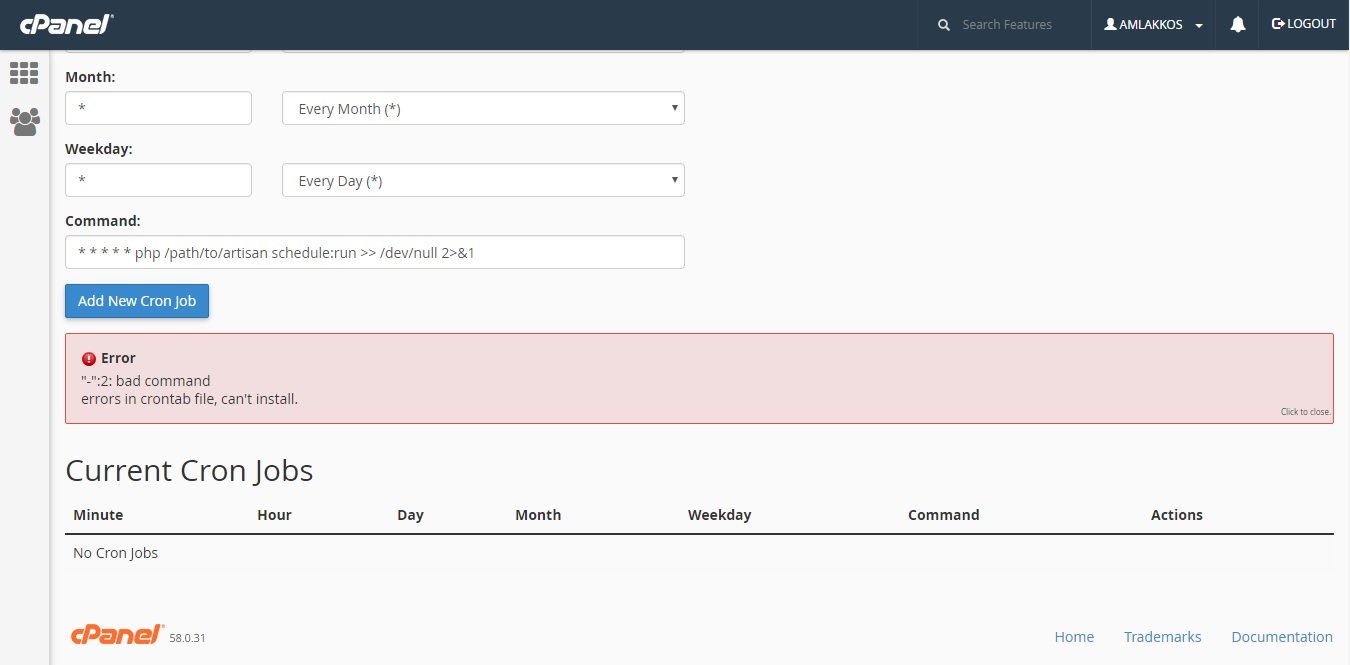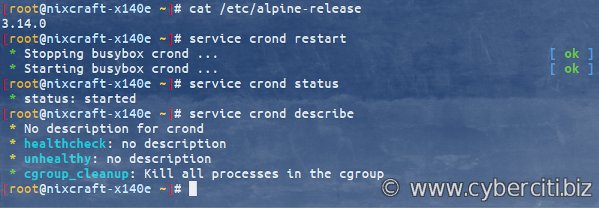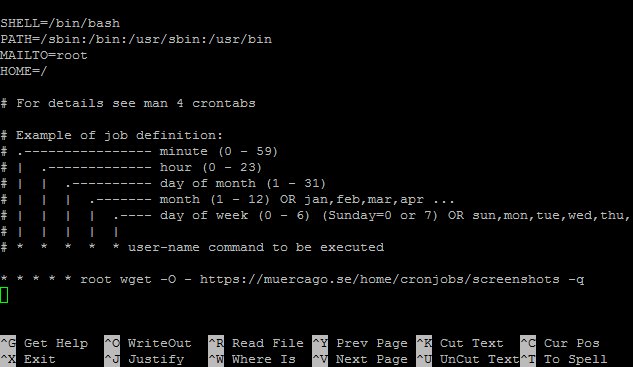Are you looking for a way to automate tasks in your Docker containers? Look no further! Docker Cron is the solution you’ve been searching for. With Docker Cron, you can easily schedule and run periodic tasks within your Docker environment, allowing you to automate repetitive actions and free up valuable time. In this article, we will dive into the world of Docker Cron and explore how it can simplify your workflow by seamlessly integrating scheduled tasks into your Docker containers. So, let’s get started and uncover the power of Docker Cron!
Introduction to Docker Cron
Docker has revolutionized the way we develop, deploy, and manage applications. It allows us to package our applications and their dependencies into containers, providing a consistent and portable environment. One powerful feature that Docker offers is the ability to run cron jobs inside containers. In this article, we will delve into the world of Docker Cron and explore how it can be used to schedule tasks, automate processes, and enhance the functionality of your applications.
What is Docker Cron?
Docker Cron refers to the integration of the cron scheduling utility with Docker containers. Cron is a time-based job scheduler commonly found in Unix-like operating systems. It allows users to automate repetitive tasks by scheduling commands or scripts to run at specific intervals. By combining Cron with Docker, we can achieve the same level of automation within isolated containers.
Benefits of Using Docker Cron
Using Docker Cron offers several benefits for developers and system administrators. Let’s take a closer look at some of these advantages:
Isolation and Portability
By encapsulating cron jobs within Docker containers, we ensure that each job runs in an isolated environment. This isolation prevents any interference or conflicts between different cron jobs. Additionally, containers are portable, making it easier to deploy and migrate cron jobs across different environments.
Version Control and Reproducibility
Docker allows us to version control our container images, including the cron jobs within them. This enables us to track changes, revert to previous versions, and ensure reproducibility of our cron job configurations. With Docker, we can guarantee that our cron jobs will run consistently regardless of the host environment.
Resource Management
Docker provides resource management capabilities that can be leveraged to optimize the execution of cron jobs. By assigning specific CPU and memory limits to the containers running cron jobs, we can ensure that these tasks do not monopolize resources and impact the performance of other services.
Scalability and Load Distribution
With Docker’s inherent scalability features, we can easily scale our cron jobs horizontally or vertically. By distributing cron jobs across multiple containers, we can handle increased workloads and achieve better load distribution. This flexibility allows us to adapt to changing demands and ensure efficient execution of our scheduled tasks.
How Does Docker Cron Work?
To utilize Docker Cron, we need to create a Docker image that includes both the application and the cron job configuration. The cron jobs are typically defined in a crontab file, which specifies the schedule and the command to be executed. When the Docker container is launched, it runs a cron daemon that reads the crontab file and executes the specified commands according to the defined schedule.
Here’s a step-by-step overview of how Docker Cron works:
- Create a Dockerfile that describes the container image.
- Add the necessary cron job configuration files to the image.
- Build the Docker image using the Dockerfile.
- Run the Docker container from the built image.
- The cron daemon inside the container reads the crontab file and executes the scheduled commands.
Creating a Dockerfile for Docker Cron
To create a Docker image that incorporates Docker Cron, we need to define a Dockerfile. The Dockerfile specifies the base image, adds the necessary dependencies, copies the cron job configuration files, and sets up the cron daemon.
Let’s take a look at a sample Dockerfile for Docker Cron:
“`
FROM ubuntu:latest
# Install cron
RUN apt-get update && apt-get install -y cron
# Copy cron job configuration
COPY cron-jobs /etc/cron.d/
# Give execution rights to the cron job
RUN chmod 0644 /etc/cron.d/*
# Setup cron daemon
CMD cron -f
“`
In this example, we start with the latest Ubuntu image as the base. We then install the cron package using apt-get. Next, we copy the cron job configuration files from the local “cron-jobs” directory to the “/etc/cron.d/” directory inside the container. We set the appropriate permissions for the cron job files and finally, start the cron daemon with “cron -f” as the default command.
Defining Cron Jobs
Once we have the Dockerfile set up, we can define our cron jobs in separate files and copy them into the container. Each cron job is defined in a crontab file, which follows a specific syntax for specifying the schedule and the command to be executed.
Here’s an example of a crontab file:
“`
* * * * * root echo “Hello, Docker Cron!”
“`
In this example, the cron job is set to run every minute. The command “echo “Hello, Docker Cron!”” will be executed at that interval. We can have multiple cron jobs defined in a single crontab file, each on a separate line.
Building the Docker Image
Once we have defined our Dockerfile and the cron job configuration, we can build the Docker image using the following command:
“`
docker build -t docker-cron-image .
“`
This command builds a Docker image with the tag “docker-cron-image” from the current directory (where the Dockerfile is located).
Running the Docker Container
To run the Docker container and start the cron jobs, we can use the following command:
“`
docker run -d docker-cron-image
“`
The “-d” flag runs the container in the background, allowing the cron jobs to execute without blocking the terminal. The container will continue running until stopped manually.
Debugging Docker Cron Jobs
Debugging cron jobs running inside Docker containers can be challenging. Here are a few tips to help troubleshoot any issues:
- Check the container logs using the command: “docker logs container-id”. This will display any output or error messages from the cron jobs.
- Verify that the cron job configuration files are correctly copied into the container.
- Double-check the syntax of the crontab file to ensure it follows the correct format.
- Make sure the necessary dependencies are installed inside the container for the cron jobs to execute successfully.
- Test the cron jobs locally before packaging them into a Docker image to isolate any issues.
Docker Cron provides a powerful solution for scheduling and automating tasks within Docker containers. By combining the capabilities of Cron with the portability and isolation of Docker, we can achieve efficient and reliable task execution. Whether you need to schedule periodic backups, data processing, or any other recurring task, Docker Cron can streamline your workflow and enhance the functionality of your applications. Embrace the power of Docker Cron and unlock a new level of automation in your containerized environment.
Cronjob inside Docker Container 🔥🔥 | Cronjob in docker | Aditya Mandil
Frequently Asked Questions
What is Docker Cron?
Docker Cron is a feature that allows you to schedule recurring tasks or jobs within your Docker containers. It provides a way to automate and manage periodic tasks, such as backups, data synchronization, and system maintenance.
How does Docker Cron work?
Docker Cron works by running a cron job inside a Docker container. A cron job is a time-based job scheduler in Unix-based operating systems. By using Docker Cron, you can specify the schedule and command to be executed, and Docker will manage the execution of the job according to the specified schedule.
Can I use Docker Cron with my existing Docker containers?
Yes, you can use Docker Cron with your existing Docker containers. You can either build an image that includes the necessary cron job configuration or modify your existing container to add the cron job configuration. Once configured, Docker Cron will ensure that the scheduled tasks are executed within the container.
What are the benefits of using Docker Cron?
Using Docker Cron offers several benefits. Firstly, it allows you to automate repetitive tasks, reducing the need for manual intervention. Secondly, it ensures that the tasks are executed consistently and according to the specified schedule. Additionally, Docker Cron helps in organizing and managing your cron jobs within the Docker ecosystem.
Can I configure multiple cron jobs within a single Docker container?
Yes, you can configure multiple cron jobs within a single Docker container. Docker Cron supports defining and managing multiple cron jobs within a single container. This allows you to consolidate and centralize your periodic tasks within a single container.
How can I troubleshoot issues with Docker Cron?
If you encounter any issues with Docker Cron, you can troubleshoot them by checking the cron job configuration, ensuring that the necessary commands and scripts are accessible within the container, and reviewing the container’s logs for any error messages. Additionally, verifying the cron schedule and the overall container environment can help in identifying and resolving any problems.
Final Thoughts
Docker cron is a powerful tool for scheduling and automating tasks within Docker containers. With the ability to run tasks on a scheduled basis, Docker cron offers a convenient solution for managing repetitive tasks such as backups, data syncing, and report generation. By leveraging the flexibility and portability of Docker, users can easily deploy and manage cron jobs across different environments. With Docker cron, developers can ensure that their tasks are executed reliably and efficiently, saving time and effort. Whether you are running a simple script or a complex workflow, Docker cron provides a straightforward and effective way to automate your tasks. So, if you are looking to streamline your task scheduling in Docker, look no further – Docker cron is the solution you need.




